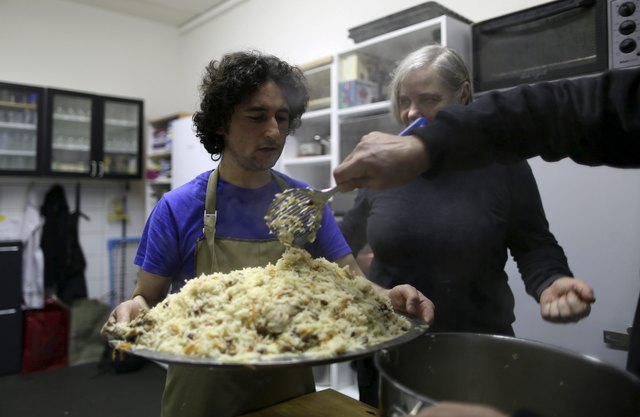Syrian refugees denied critical healthcare in Jordan: Amnesty

LONDON (Thomson Reuters Foundation) – Syrian refugees in
Jordan are finding it very difficult to get medical care because of Jordanian
fees and bureaucracy, and shrinking humanitarian financial support, rights
group Amnesty International says.
Many refugees cannot afford the fees for medical care
imposed by the Jordanian government in 2014, and some, injured in the Syrian
conflict, have died after being turned away at the border, Amnesty said in a
report.
There are 630,000 Syrian refugees in Jordan registered with
the United Nations refugee agency (UNHCR), the vast majority of them living in
poverty outside the refugee camps, Amnesty said.
“Lengthy bureaucratic procedures and additional
health care fees pose huge obstacles to those of them requiring medical
treatment,” Sherif Elsayed-Ali, head of refugee and migrants’ rights at
Amnesty International, said in a statement.
“The user fees imposed by Jordan may not appear to
be high but are unaffordable for most refugees who are struggling to feed their
families, and leave many unable to access the critical care they need.”
Refugees who have left the camps unofficially or
re-entered Jordan after going back to Syria are not eligible to receive
documents required by the Jordanian authorities to obtain public services,
including healthcare, it said.
Falling humanitarian support has contributed to the
problem, as only 26 percent of Jordan’s funding requirements for health had
been met at the end of 2015, Amnesty said.
Some refugees with critical injuries have been denied
access, despite a provision allowing entry for those with war-related injuries,
since Jordan imposed restrictions in 2012 on Syrians trying to cross the
border, Amnesty said.
The main reasons for refusal of entry were lack of
identity documents (ID) or the injuries not being life-threatening, it said.
In July, 14 injured people, among them five children
with shrapnel wounds, were prevented from entering Jordan and four of them died
while waiting at the border, Amnesty said.
“To not even allow entry to people who are fleeing
a conflict zone with serious injuries because they don’t have ID papers shows a
chilling lack of compassion and appalling disregard for their rights to health
and life,” Elsayed-Ali said.
Some 58 percent of Syrians with chronic conditions
lacked access to medicines or other health services, Amnesty said, citing UNHCR
figures.
“Greater international support in the form of more
resettlement places for refugees and financial assistance would make a world of
difference by enabling the Jordanian authorities to strengthen the health
system and remove barriers that are preventing Syrian refugees from accessing
crucial health care,” Elsayed-Ali said.
The Jordanian government was not immediately available
to comment.


